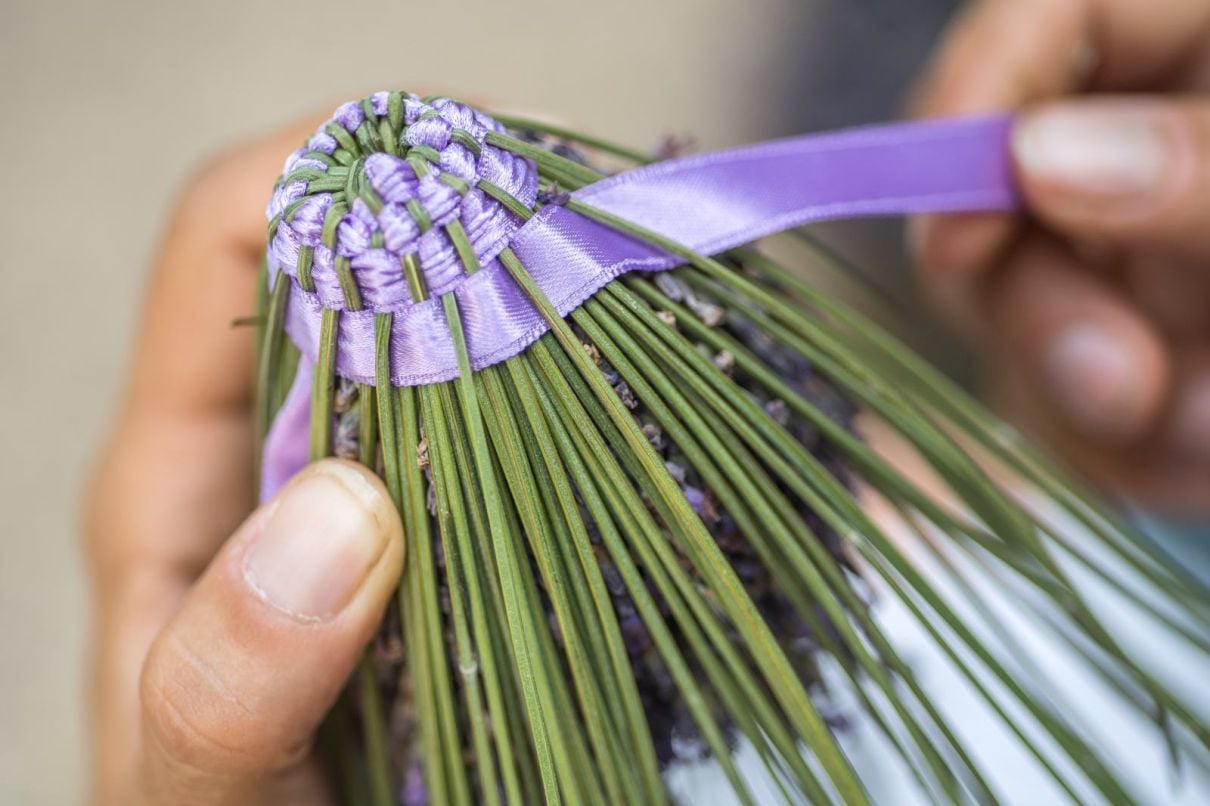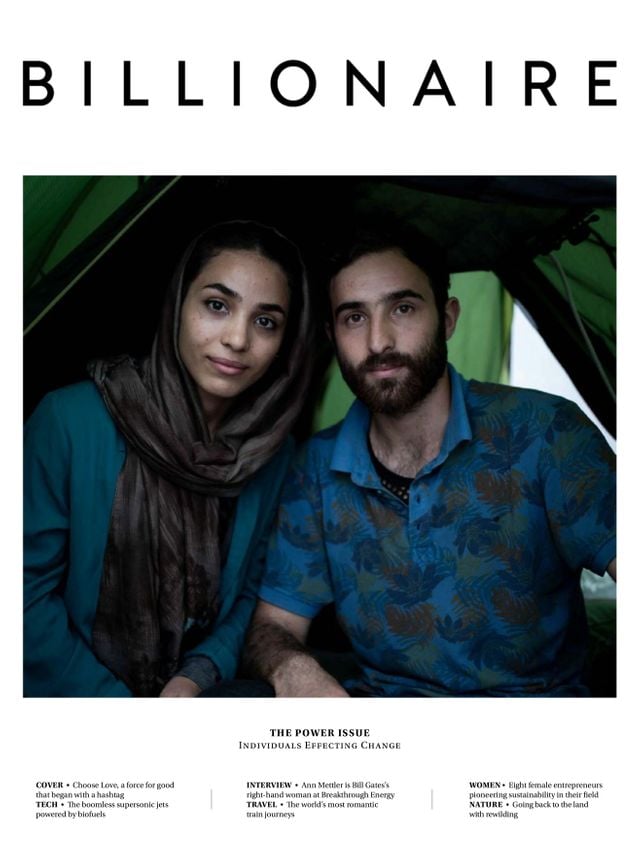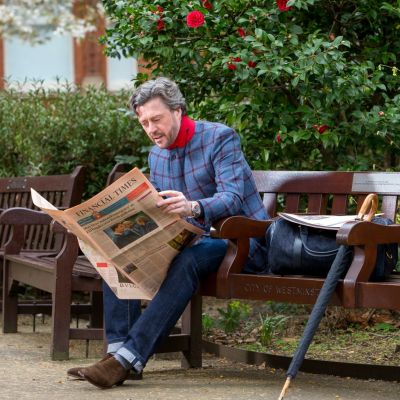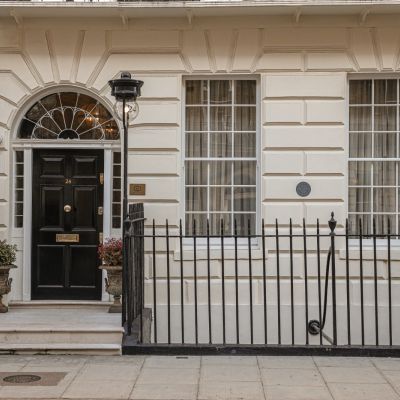Crafts For Inmates

Elsa Lenthal is teaching prisoners in France an unusual craft, at once sustainable and therapeutic.

From the film industry to South-East Asia, all roads led Elsa Lenthal to come back to her native Provence to embrace traditions and a slower life, learn about organic agriculture, and teach prisoners to weave lavender wands.
How does it feel to be a woman, and farmer, crafting beautiful artisanal objects today, respecting nature, ancient traditions and savoir-faire?
I was lucky enough to grow up in the Alpilles, Provence, as an only child, with the wild as a playground. Very early on I realized that my hands were an amazing tool and I started using them to make all kinds of things: at age 10, I made my first lavender wand, a weaving technique that dates back to the 18th century, passed on by my mother. It soon became my summer job and I would sell them on the market. As a young adult, life led me to work as an assistant director on feature films before I moved to South East Asia and started a family: whatever the distance, I always return to the soil, Provence and this timeless craft. Five years ago, I decided to launch my own business - Fuseaux de Lavande.
You teach your craft to prisoners in Salon de Provence and they work for you in return, crafting up to 1,800 fuseaux de lavande in one season: what does it bring them and was has it taught you?
My desire to use traditions to foster a project with a social impact was there from the start. As my small business grew, I was looking to produce more wands, in a meaningful way. Working with prisoners came up and I embraced it as a new challenge: at first, I thought I would work with women but quickly realized that they were too few in the prisons around me. I started my first training with male inmates: the idea was to teach them the craft, provide them with the raw material (fresh lavender and ribbons) and buy the wands at a higher price than the one imposed by the prison administration. The Fuseaux de Lavande workshop was set up in 2017 in the Salon de Provence detention centre with 15 inmates: I never thought it would be such a strong experience. Deprived of freedom and often humanity, the inmates soon renamed the workshop “Lavandotherapy" as it had a soothing effect on them. Crafting a beautiful object, they regained confidence, they felt valued and found financial satisfaction at the same time. Spending every Monday with them, as a woman, allowed conversations to take place and humanity to settle in: every Monday, we learnt from each other.
Since then, every summer I train new prisoners to weave lavender wands.
The philosophy behind Fuseaux de Lavande is to treat materials, artisans and craftsmen like an ecosystem. Is growing your own lavender and embracing ancient crafts important to you?
The journey of Fuseaux de Lavande has been unique: from a rediscovered tradition, I would have never imagined federating, transmitting, reintegrating and sharing values around this symbolic object. The craftsmanship around it is anchored in Provence’s timeless tradition: a popular culture shared by many. A few years’ back, weaving lavender was a disappearing craft: I could see how moved old ladies were, to see a young woman carrying on the tradition.
However, to perpetuate a tradition does not mean maintaining folklore: in the hand of the craftsman, the tradition evolves, transforms. Today I use designer ribbons as much as I source older ones on flea markets. The craft evolves.

You’ve recently donated four Fuseaux de Lavande to the new Arlatan Museum – Provence’s newest and modern Ethnography Museum first founded in 1896 – what was your aim behind it?
The Museon Arlatan has just reopened its doors after 11 years of renovation. Founded by poet and writer Frédéric Mistral, it keeps Provence’s traditions alive: made possible thanks to local donations back in the days, the collection welcomes thousands of objects, showcases popular art.
After a preview visit of the museum, I asked whether there were any lavender wands in the collection. When I heard they didn’t, I decided to donate four wands to keep traditions alive for future generations.
How important is it for you to imagine ‘holistic’ objects and projects that somewhat go against the consumer world?
Growing lavender, making lavender wands by hand, working with a flower known for its calming and soothing properties, comes across as a pleasure, I can then share with customers. Buying a lavender wand is also about consuming differently, embracing a slower life, one based on organically grown plants that flower one a year. Its natural scent lasts for several years. Here we take the time to watch nature do its work and we use our hands as a tool. Our fast-paced societies rarely give us this time.
What role will sustainability play in the future of Fuseaux de Lavande and, in your opinion, to regional crafts? What are your aspirations in that respect?
For me there is no question. My craft is linked to the local soil. No one will ever invent machines to make lavender wands, the market will never be big enough for someone to invest in it. And I note that today mentalities are changing, people are tired of finding the same manufactured items everywhere. Tourists who visit Provence want to bring with them a souvenir that makes sense, a little bit of the region's history and not a Provencal tablecloth made in Pakistan.









